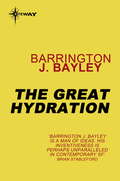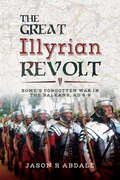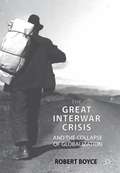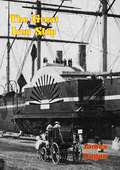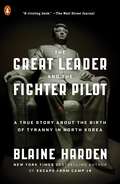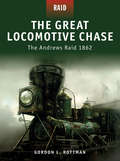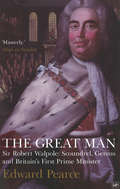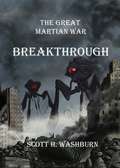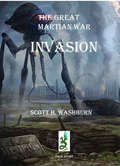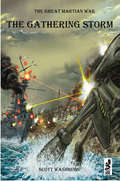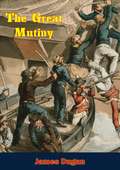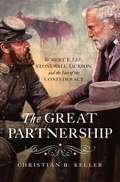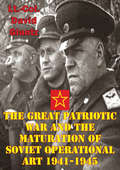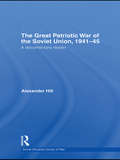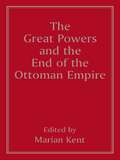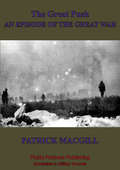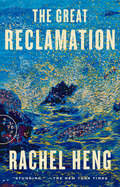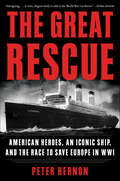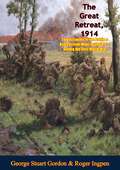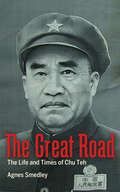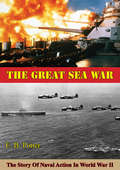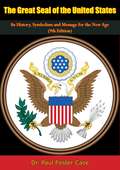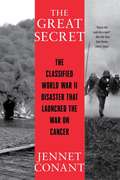- Table View
- List View
The Great Hydration
by Barrington J. BayleyKarl Krabbe and Boris Bouche, partners, explorers, interstellar chancers, don't care much for the law. They don't care much for anything - except profit. Their staff bondman nuclear engineer Roncie Northrop doesn't care much about anything either, except that he's already tried to abscond from the control of the rapacious and illegally operating pair once.When K&B's exploration ship comes upon the small planet Tenacity, they see a good business opportunity. Tenacity is waterless, a desert planet. But it had water once, and they realize that with some adroit but spectacular geological engineering it can be given its oceans back. That suits the dominant lobster-like Tlixix fine. They are tired of living like aliens in their domed refuges. Of course, the numerous intelligent species which have evolved since the great dehydration will perish, but so what? As for Roncie, whose part in the project is crucial, he doesn't like it much, but what can he do? He's only a bondman.Krabbe and Bouche strike a deal, and business is business...
The Great Illyrian Revolt: Rome's Forgotten War in the Balkans, AD 6–9
by Jason R. AbdaleThe little-known story of a fierce rebellion against the Romans:&“A very good read for anyone interested in ancient military history and historiography.&” —The NYMAS Review In the year AD 9, three Roman legions were crushed by the German warlord Arminius in the Battle of the Teutoburg Forest. This event is well known, but there was another uprising that Rome faced shortly before, which lasted from AD 6 to 9, and was just as intense. This rebellion occurred in the western Balkans—an area roughly corresponding to modern Croatia, Bosnia and Herzegovina, Slovenia, Montenegro, and parts of Serbia and Albania—and it tested the Roman Empire to its limits. For three years, fifteen legions fought in the narrow valleys and forest-covered crags of the Dinaric Mountains in a ruthless war of attrition against an equally ruthless and determined foe, and yet this conflict is largely unknown today. The Great Illyrian Revolt is believed to be the first book ever devoted to this forgotten war of the Roman Empire. Within its pages, we examine the history and culture of the mysterious Illyrian people, the story of how Rome became involved in this volatile region, and what the Roman army had to face during those harrowing three years in the Balkans.
The Great Interwar Crisis and the Collapse of Globalization
by Robert BoyceChallenging the standard narrative of Interwar International History, this account establishes the causal relationship between the global political and economic crises of the period, and offers a radically new look at the role of ideology, racism and the leading liberal powers in the events between the First and Second World Wars.
The Great Iron Ship
by James DuganIF EVER there was a subject fit for the hand of the biographer, the story of the Great Eastern is surely it. James Dugan has made the entertaining most of a monstrous but true episode of the high Victorian days, the age of iron and the mechanical engineer. He has written a failure-story far more amusing than most success-stories could be: and out of 692 feet and 12.000 tons of iron he has made a character almost human in its foibles and its superb talent for getting into trouble.Before the Great Eastern had made her first trip to New York, she had eaten up $5,000,000, the first of the fortunes she regularly swallowed on every voyage. She had hardly steamed a few dozen miles when the forward funnel blew out. She passed through the hands of three groups of shareholders before she ever carried a paying passenger. Everything that could possibly happen to a ship happened to the Great Eastern. Tanks of fish oil deluged her engine deck. Two horses died of a bad cold because she passed too close to an iceberg. On her fourth voyage she got stuck in Flushing Bay, at the western end of Long Island Sound, with a gash in her bottom that would have comfortably accommodated an ordinary-sized ship. Storm, mechanical failure, inefficient captains and crew—the Great Eastern had everything. She almost cut New York in two when she first docked.Into her story enter such figures as Cyrus Field—who made use of the Great Eastern to lay the Atlantic cable; Louis Napoleon—he wrested the leviathan just in time from the hands of the Sultan of Turkey, who wanted to use her to house his harem; Jules Verne, Du Chaillu. Indian nabobs, the war correspondent Scott Russell, and dozens of other figures of a bygone age.The whole story is told by Mr. Dugan with an unfailing appreciation of the high, low and medium comedy involved in the Great Eastern’s crazy career, and with a sharp eye for the Victorian background and personalities.
The Great Islamic Conquests AD 632-750
by David NicolleFew, if any, centuries in world history have had such a profound and long-lasting impact as the first hundred years of Islamic history. In this book, David Nicolle, a former member of the BBC's Arabic service, examines the extensive Islamic conquests between 632 and 750 AD. These years saw the religion and culture of Islam, as well as the Arabic language, erupt from the Arabian Peninsula to spread across an area far larger than that of the Roman Empire at its greatest extent. It also saw the abrupt collapse of the Persian Empire, as well as the permanent withdrawal of the Romano-Byzantine Empire and its associated cultures, along with Christianity as a ruling faith, from the Middle East and North Africa. Virtually all the lands "opened" by their armies remain Islamic - and in many cases Arabic-speaking - to this day, in contrast to the often ephemeral achievements of better-known conquerors, such as Alexander the Great and several Roman Caesars, and the effects of this rapid expansion was to shape European affairs for centuries to come.
The Great Leader and the Fighter Pilot
by Blaine HardenFrom the New York Times bestselling author of Escape From Camp 14, Blaine Harden tells the riveting story of Kim Il Sung's rise to power, and the brave North Korean fighter pilot who escaped the prison state and delivered the first MiG-15 into American handsIn The Great Leader and the Fighter Pilot, New York Times bestselling author Blaine Harden tells the riveting story of how Kim Il Sung grabbed power and plunged his country into war against the United States while the youngest fighter pilot in his air force was playing a high-risk game of deception--and escape.As Kim ascended from Soviet puppet to godlike ruler, No Kum Sok noisily pretended to love his Great Leader. That is, until he swiped a Soviet MiG-15 and delivered it to the Americans, not knowing they were offering a $100,000 bounty for the warplane (the equivalent of nearly one milliondollars today). The theft--just weeks after the Korean War ended in July 1953--electrified the world and incited Kim's bloody vengeance.During the Korean War the United States brutally carpet bombed the North, killing hundreds of thousands of civilians and giving the Kim dynasty, as Harden reveals, the fact-based narrative it would use to this day to sell paranoia and hatred of Americans.Drawing on documents from Chinese and Russian archives about the role of Mao and Stalin in Kim's shadowy rise, as well as from neverbefore- released U.S. intelligence and interrogation files, Harden gives us a heart-pounding escape adventure and an entirely new way to understand the world's longest-lasting totalitarian state.From the Hardcover edition.
The Great Leader and the Fighter Pilot: The True Story of the Tyrant Who Created North Korea and the Young Lieutenant Who Stole His Way to Freedom
by Blaine HardenFrom the New York Times bestselling author of Escape From Camp 14, Blaine Harden tells the riveting story of Kim Il Sung's rise to power, and the brave North Korean fighter pilot who escaped the prison state and delivered the first MiG-15 into American handsIn The Great Leader and the Fighter Pilot, New York Times bestselling author Blaine Harden tells the riveting story of how Kim Il Sung grabbed power and plunged his country into war against the United States while the youngest fighter pilot in his air force was playing a high-risk game of deception--and escape.As Kim ascended from Soviet puppet to godlike ruler, No Kum Sok noisily pretended to love his Great Leader. That is, until he swiped a Soviet MiG-15 and delivered it to the Americans, not knowing they were offering a $100,000 bounty for the warplane (the equivalent of nearly one million dollars today). The theft--just weeks after the Korean War ended in July 1953--electrified the world and incited Kim's bloody vengeance.During the Korean War the United States brutally carpet bombed the North, killing hundreds of thousands of civilians and giving the Kim dynasty, as Harden reveals, the fact-based narrative it would use to this day to sell paranoia and hatred of Americans.Drawing on documents from Chinese and Russian archives about the role of Mao and Stalin in Kim's shadowy rise, as well as from never-before-released U.S. intelligence and interrogation files, Harden gives us a heart-pounding escape adventure and an entirely new way to understand the world's longest-lasting totalitarian state.From the Hardcover edition.
The Great Locomotive Chase - The Andrews Raid 1862
by Gordon Rottman Mariusz KozikIn April 1862, the stage was set for one of the greatest locomotive chases in history. Union forces planned to steal a train and travel at high speed to Chattanooga, Tennessee, disabling the line as they went, in order to cut off vital rail supplies to the Confederate stronghold of Atlanta, Georgia, some 100-plus miles to the southwest. What they hadn't banked on was the dogged determination of one man, train conductor William Fuller, who, after realizing his train had been stolen, began a frantic pursuit, first by handcar, then by top-speed locomotive, dealing with derailments by running miles on foot to the next station, and single-handedly removing drag ties from the track in front of his train. The raiders were so hotly pursued that they had no time to inflict serious damage on the tracks and could not stop to gather more fuel. Just north of Ringgold, some miles south of Chattanooga, The General ran out of wood and the raiders scattered into the forested Appalachian Mountains. All were captured within days and sentenced to death. Discover the history of one of the most colorful and dramatic episodes of the Civil War as Gordon L. Rottman expertly recounts this incredible tale of sabotage, robbery and raiding on the rail lines of the Deep South.
The Great Man: Sir Robert Walpole: Scoundrel, Genius and Britain's First Prime Minister
by Edward PearceThe year 1721 has many splendours: great houses built by William Kent, fine pictures and the fruits of commerce. But there are also thirteen public hanging days a year, drunkenness is endemic, organised crime rampages through the streets. And politics are ferocious. Only a generation earlier, The Pretender failed to take the Crown; the new King is cursed as a damned foreigner; James's followers - the Jacobites - conspire and are persecuted; the South Sea Bubble collapses.Robert Walpole, once imprisoned for financial chicanery, assumes political control and becomes 'Prime Minister'. He personally detects a Jacobite plot, is dismissed in 1727 on the death of George I, recruits the new King's clever wife, Caroline, and bounces cheerfully back. Coarse, corrupt and cynical, Walpole dominates King, Parliament and Government until 1742. This is Mr Worldywiseman, keeping England out of war for twenty years and setting up a stable and growing economy. All politics of a kind we can recognise today begin with Robert Walpole. And here, in Edward Pearce's elegant book, he is brought vividly back to life.
The Great Martian War: Breakthrough
by Scott WashburnThe Battle for Earth continues! The merciless invaders from the Red Planet have entrenched themselves all over the world, but President Theodore Roosevelt and the men of the US Army and Navy are focused on the aliens threatening the American heartland. As forces are rushed to meet the invader, science and industry race to build the weapons needed to match the fantastic machines of the aliens. But not all is well with the Martians as they struggle to adapt to a new world. The lines are drawn as each side prepares for what they hope will be the decisive battle. This is the second book in the first trilogy of The Great Martian War.
The Great Martian War: Invasion! (The\great Martian War Ser. #1)
by Scott WashburnFollowing the defeat of the Martian invasion of Britain, a new threat to humanity lands in the American west. President Roosevelt musters the captains of industry and leading scientists to find a way to turn back the Martian tide
The Great Martian War: The Gathering Storm (The Great Martian War #5)
by Scott WashburnAfter the failure of their first scouting expedition to England in 1900, the Martians regrouped, developed means to deal with the deadly Earthly microorganisms, and landed again in 1908. Not just in one location, but all over the world. Their transport cylinders fell on every continent and in great number. Only England and Europe were spared this time.The first three books in the Great Martian War series dealt with the invasion in America. The Gathering Storm expands the narrative to Australia, Africa, and the Near East. The year is 1912 and the Martians have planned a vast coordinated offensive to link up their scattered conquests and assemble a force so powerful that nothing can resist it.
The Great Mutiny
by James DuganTHE time is 1797. The armies of the French Revolution have swept over Europe, leaving Britain’s eight million people to stand alone against populations totaling more than fifty million. On the Continent an enormous invasion force is massing; while in England the country is nearly bankrupt and popular discontent is so widespread that the monarchy itself is in danger and the possibility of a British Republic looms.At the height of the crisis, the British fleet mutinies in protest against poor pay, impossible living conditions, short and inedible rations, brutality and impressment, leaving England completely vulnerable to her enemies. Over 50,000 men serving in 113 ships refuse orders, expel their officers and set up ship democracy in the longest and largest naval insurrection in history. Their revolt becomes both a symptom and a cause of the internal dissension that wracks their country and in THE GREAT MUTINY, provides the focus for a panoramic view of Georgian England.Here are the great names of the time: mad George III, gobbling his breakfast oatmeal and embarking on a twenty-mile stag chase while half his fleet was lowering the royal standard: his Prime Minister, William Pitt the Younger; the opposition leader in Parliament, Charles James Fox; Captain William Bligh of Bounty fame; the young Bonaparte; and Winston Churchill’s great-great-grandfather, the Second Earl Spencer, First Lord of the Admiralty.
The Great Partnership: Robert E. Lee, Stonewall Jackson, And The Fate Of The Confederacy
by Christian B. KellerThe story of the unique relationship between Lee and Jackson, two leaders who chiseled a strategic path forward against the odds and almost triumphed. Why were Generals Lee and Jackson so successful in their partner- ship in trying to win the war for the South? What was it about their styles, friendship, even their faith, that cemented them together into a fighting machine that consistently won despite often overwhelming odds against them? The Great Partnership has the power to change how we think about Confederate strategic decision-making and the value of personal relationships among senior leaders responsible for organizational survival. Those relationships in the Confederate high command were particularly critical for victory, especially the one that existed between the two great Army of Northern Virginia generals. It has been over two decades since any author attempted a joint study of the two generals. At the very least, the book will inspire a very lively debate among the thousands of students of Civil War his- tory. At best, it will significantly revise how we evaluate Confederate strategy during the height the war and our understanding of why, in the end, the South lost.
The Great Patriotic War And The Maturation Of Soviet Operational Art 1941-1945
by Colonel David M GlantzThis report examines the development of the Soviet Army's operational art against the Germans during World War 2. It examines the reconstruction and reorganization of the Soviet military forces after Hitler's invasion, the development and coordination of military tactics on the various fronts and the deployment of forces for defense or attack in several battles.
The Great Patriotic War of the Soviet Union, 1941-45: A Documentary Reader (Soviet (Russian) Study of War)
by Alexander HillThis book consists of extracts from key documents, along with commentary and further reading, on the ‘Great Patriotic War’ of the Soviet Union against Nazi Germany, 1941-45. Despite the historical significance of the war, few Soviet documents have been published in English. This work provides translations of a range of extracts from Soviet documents relating to the titanic struggle on the Eastern Front during World War II, with commentary. This is the only single-volume work in English to use documentary evidence to look at the Soviet war effort from military, political, economic and diplomatic perspectives. The book should not only facilitate a deeper study of the Soviet war effort, but also allow more balanced study of what is widely known in the West as the ‘Eastern Front’. This book will be of much interest to students and scholars of military history, Soviet history, and World War II history.
The Great Powers and the End of the Ottoman Empire
by Marian KentHow far was the end of the Ottoman Empire the result of Great Power imperialism and how far the result of structural weaknesses within the Empire itself? These studies of the foreign policy of each of the Great Powers and the Ottoman Empire examine these fundamental issues.
The Great Push - An Episode Of The Great War
by Patrick MacgillWinner of a much esteemed star from doyen of First World War writers Cyril Falls, the author writes of the battle of Loos in 1915, particularly graphically. MacGill was actually engaged and wounded during the battle whilst serving with the London Irish Rifles."MacGill, who had won considerable fame as a writer of "navvy " romances before the War, wrote one of the most vivid English accounts of a battle that was published while it was still in progress. He used to be known as a "powerful," meaning a rather brutal writer, but a study of The Great Push beside some of the contemporary novels and narratives will show what an admirable advance in "power" has been made since then. His account covers quite a short period: the Battle of Loos with its preparatory period and its aftermath. He himself was a stretcher-bearer. He saw the famous football dribbled over by his regiment, the London Irish, and saw it afterwards deflated on the German wire. The passages describing a night in Loos and the subsequent panic are very fine." p. 215 Cyril Falls. War Books, London, 1930.
The Great Reclamation: A Novel
by Rachel HengNAMED A MOST ANTICIPATED BOOK OF 2023 BY TIME, THE WASHINGTON POST, OPRAH DAILY, BUSTLE, ELECTRIC LITERATURE AND MORE!&“A beautifully written novel. I loved so much in this book: the richly imagined setting, the complicated love story, and the heartbreaking way history can tear apart a family.&“ —Ann Napolitano, New York Times bestselling author of Hello BeautifulSet against a changing Singapore, a sweeping novel about one boy&’s unique gifts and the childhood love that will complicate the fate of his community and countryAh Boon is born into a fishing village amid the heat and beauty of twentieth-century coastal Singapore in the waning years of British rule. He is a gentle boy who is not much interested in fishing, preferring to spend his days playing with the neighbor girl, Siok Mei. But when he discovers he has the unique ability to locate bountiful, movable islands that no one else can find, he feels a new sense of obligation and possibility—something to offer the community and impress the spirited girl he has come to love. By the time they are teens, Ah Boon and Siok Mei are caught in the tragic sweep of history: the Japanese army invades, the resistance rises, grief intrudes, and the future of the fishing village is in jeopardy. As the nation hurtles toward rebirth, the two friends, newly empowered, must decide who they want to be, and what they are willing to give up. An aching love story and powerful coming-of-age that reckons with the legacy of British colonialism, the World War II Japanese occupation, and the pursuit of modernity, The Great Reclamation confronts the wounds of progress, the sacrifices of love, and the difficulty of defining home when nature and nation collide, literally shifting the land beneath people&’s feet.
The Great Rescue: American Heroes, an Iconic Ship, and the Race to Save Europe in WWI
by Peter HernonPublished in commemoration of the centennial of America’s entry into World War I, the story of the USS Leviathan, the legendary liner turned warship that ferried U.S. soldiers to Europe—a unique war history that offers a fresh, compelling look at this epic time.When war broke out in Europe in August 1914, the new German luxury ocean liner SS Vaterland was interned in New York Harbor, where it remained docked for nearly three years—until the United States officially entered the fight to turn the tide of the war. Seized by authorities for the U.S. Navy once war was declared in April 2017, the liner was renamed the USS Leviathan by President Woodrow Wilson, and converted into an armed troop carrier that transported thousands of American Expeditionary Forces to the battlefields of France.For German U-Boats hunting Allied ships in the treacherous waters of the Atlantic, no target was as prized as the Leviathan, carrying more than 10,000 Doughboys per crossing. But the Germans were not the only deadly force threatening the ship and its passengers. In 1918, a devastating influenza pandemic—the Spanish flu—spread throughout the globe, predominantly striking healthy young adults, including soldiers.Peter Hernon tells the ship’s story across multiple voyages and through the experiences of a diverse cast of participants, including the ship’s captain, Henry Bryan; General John Pershing, commander of the American Expeditionary Force; Congressman Royal Johnson, who voted against the war but enlisted once the resolution passed; Freddie Stowers, a young black South Carolinian whose heroism was ignored because of his race; Irvin Cobb, a star war reporter for the Saturday Evening Post; and Elizabeth Weaver, an army nurse who saw the war’s horrors firsthand; as well as a host of famous supporting characters, including a young Franklin Delano Roosevelt.Thoroughly researched, dramatic, and fast-paced, The Great Rescue is a unique look at the Great War and the diverse lives it touched.
The Great Retreat, 1914: During the First World War [Illustrated Edition]
by Roger Ingpen George Stuart GordonIncludes The First World War On The Western Front 1914-1915 Illustrations Pack with 101 maps, plans, and photos.“Two views of the Great RetreatImperial Germany had long planned the conflict that was to become the First World War, but when the onslaught came there was little sign that the nations which would be embroiled were prepared for the storm. Germany advanced in the east and west where French and Belgian armies were forced to retire by overwhelming odds. The small British Army, the 'B. E. F', was rushed to the continent with most of its troops having less than a week between garrison life and the firing line. Under Sir John French, it was allocated the western end of the line, and at Mons it inflicted far more causalities on the enemy than its numbers would suggest. No army of its size, however, could stand against the German superiority in men (at least five to one) or artillery and machine guns. An envelopment was inevitable and so a stubbornly fought retreat was ordered. Near Le Cateau, the British turned at bay and Smith-Dorrien's determination to stand and fight undoubtedly saved the British Army from annihilation. Many people imagine the First World War as a stalemate of mud, wire and trenches, but in the first six months it was a great European war fought in much the same way that Napoleon, Wellington and Blucher had fought a century before.”-Print ed.
The Great Road: The Life and Times of Chu Teh
by Agnes SmedleyThe Great Road: The Life and Times of Chu Teh, first published in 1956, is the account by American author Agnes Smedley of Chinese military and political leader Chu Teh (now spelled Zhu De). Chu, close associate of Mao Tse-Tung (Mao Zedong), rose from an impoverished peasant family, to eventually becoming a general and one of the pioneers of the Chinese Communist Party. He would later go on to be one of the principle founders of the People's Liberation Army. The Great Road treats Chu's life from his humble beginnings in Sichuan province, to his 60th birthday in 1946, soon after the close of World War Two. The book is based on Smedley's first-hand interviews with Chu, and she spent a great deal of time with Chu and his armies during their fight against Nationalist and Japanese forces. The book also paints a detailed picture of China in the 1930s-40s: the political and military strife, the brutality and atrocities, the plight of the peasants who comprised the vast bulk of the population, the "Long March," and the efforts of the Communists to win control of the country. Smedley, herself an interesting historical figure (the evidence points to her being involved in pro-Communist spying in China, Russia, and India), passed away in 1950. Chu died in 1976, remaining active in Chinese politics until his death.
The Great Sea War: The Story Of Naval Action In World War Ii
by E. B. Potter Fleet-Admiral Chester W. NimitzA brilliant, concise and, perhaps, best single volume history of the Second World War at Sea. Written by veteran historian E. B. Potter during his time as resident historian at the United States Naval Academy this history is filled with action and analysis. As the conflict raged from the Pacific to the North Sea the author takes the action in each theater for the purposes of clarity but masterfully links the actions and events together to preserve the historical integrity of the work.A classic of Naval History.
The Great Seal of the United States: Its History, Symbolism and Message for the New Age (9th Edition)
by Paul Foster CaseThe Great Seal of the United States, which was first published in 1935, is a fascinating exposition of the history and spiritual symbolism of an important American emblem that embodies the principles and ideals of the founders of this country.In this book, American occultist, B.O.T.A. founder, teacher and author Dr. Paul Foster Case reveals the Great Seal to be a profound spiritual glyph created by the Founding Fathers as a representation of the ideals of the Novo Ordo Seclorum, the New World Order.A fascinating, thought-provoking read.
The Great Secret: The Classified World War Ii Disaster That Launched The War On Cancer
by Jennet ConantThe gripping story of a chemical weapons catastrophe, the cover-up, and how one American Army doctor’s discovery led to the development of the first drug to combat cancer, known today as chemotherapy. On the night of December 2, 1943, the Luftwaffe bombed a critical Allied port in Bari, Italy, sinking seventeen ships and killing over a thousand servicemen and hundreds of civilians. Caught in the surprise air raid was the John Harvey, an American Liberty ship carrying a top-secret cargo of 2,000 mustard bombs to be used in retaliation if the Germans resorted to gas warfare. When one young sailor after another began suddenly dying of mysterious symptoms, Lieutenant Colonel Stewart Alexander, a doctor and chemical weapons expert, was dispatched to investigate. He quickly diagnosed mustard gas exposure, but was overruled by British officials determined to cover up the presence of poison gas in the devastating naval disaster, which the press dubbed "little Pearl Harbor." Prime Minister Winston Churchill and General Dwight D. Eisenhower acted in concert to suppress the truth, insisting the censorship was necessitated by military security. Alexander defied British port officials and heroically persevered in his investigation. His final report on the Bari casualties was immediately classified, but not before his breakthrough observations about the toxic effects of mustard on white blood cells caught the attention of Colonel Cornelius P. Rhoads—a pioneering physician and research scientist as brilliant as he was arrogant and self-destructive—who recognized that the poison was both a killer and a cure, and ushered in a new era of cancer research led by the Sloan Kettering Institute. Meanwhile, the Bari incident remained cloaked in military secrecy, resulting in lost records, misinformation, and considerable confusion about how a deadly chemical weapon came to be tamed for medical use. Deeply researched and beautifully written, The Great Secret is the remarkable story of how horrific tragedy gave birth to medical triumph.
